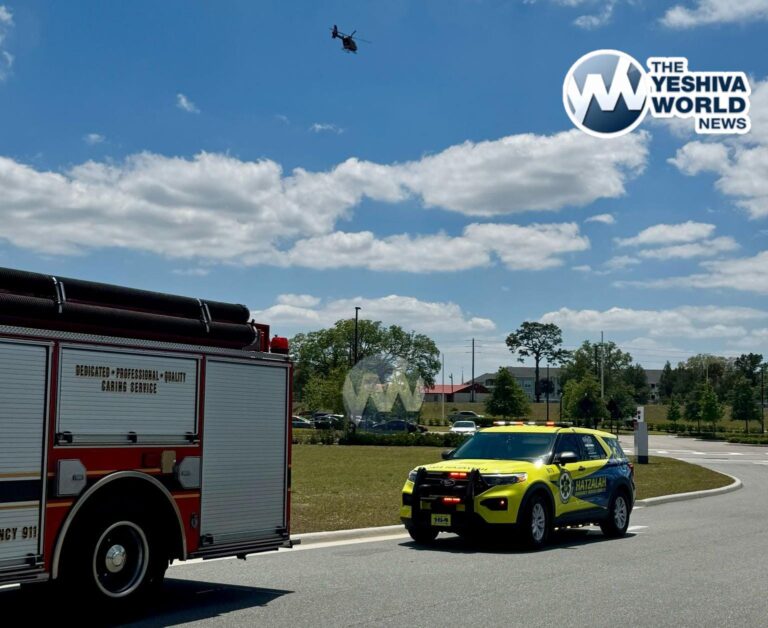In war, winning quick control of airspace is crucial. Russia’s failure to do so in Ukraine, despite its vast military strength, has been a surprise and may help explain how Ukraine has so far prevented a rout.
The standoff in the sky is among the Russian battle shortcomings, including logistical breakdowns, that have thrown Moscow off stride in its invasion.
Typically, an invading force would seek at the outset to destroy or at least paralyze the target country’s air and missile defenses because dominance of the skies allows ground forces to operate more effectively and with fewer losses. U.S. military officials had assumed that Russia would use its electronic warfare and cyber capabilities to blind and paralyze Ukraine’s air defenses and military communications.
A possible explanation for Russia’s failure to do so is that President Vladimir Putin built his war strategy on an assumption that Ukrainian defenses would easily fold, allowing Russian forces to quickly capture Kyiv, the capital, and crush Ukrainian forces in the east and south without having to achieve air superiority.
If that was the plan, it failed, although at this stage the conflict’s overall trajectory still seems to favor the larger, better equipped invading force. The invasion is less than a week old, and Russia still hasn’t committed to the battle the full force it had assembled on the border. A senior U.S. official said Monday that about one-quarter of the force hasn’t crossed into Ukraine.
The official, who spoke on condition of anonymity to discuss internal military assessments, said Ukraine has retained a majority of its surface-to-air missile systems — used to shoot down aircraft — and a majority of its helicopters and airplanes. One reason they have yet to be destroyed, the official said, may be because Ukraine’s air defenses were not centrally located and may have been moved around the country.
It appears that Russian commanders have become frustrated by the pace of their battlefield gains and failure to win full air dominance, the official said. In response they may consider more aggressive, larger-scale attacks against Kyiv and to reduce the significant remaining Ukrainian air defenses.
When he announced his decision to attack on Feb. 24, Putin gave no timetable for completing what he called not a war but a “special military operation.” By U.S. estimates he had assembled more than 150,000 troops on Ukraine’s borders.
“We think that they’re a few days behind where they expected to be” at this stage, Pentagon press secretary John Kirby said Monday, five days into a war that is the largest in Europe since World War II. “It’s clear, yes, the Russians have had their own challenges and they have met resistance we don’t believe they fully expected.”
Philip Breedlove, a retired Air Force general who commanded NATO forces in Europe from 2013 to 2016, said Russia did unleash substantial missile attacks on Ukrainian air defense sites and airfields in the first few days. And yet the Ukrainians have found creative ways to preserve their air and missile defenses.
“I am pleasantly surprised that the air defense capability of Ukraine, even though diminished, has carried on as long as it has,” Breedlove said. He added that Russia may yet bring more fighters and bombers into the conflict, even as Ukraine acquires Stinger missiles and other air defense weaponry from Western nations.
In Breedlove’s view, the weaponry provided to Ukraine by the United States and many other countries in recent weeks, including Javelin anti-tank missiles, has given Kyiv an important boost. He recalled that when Western countries in 2014 began providing radars used to detect and pinpoint the origin of artillery and mortar attacks, some questioned whether the Ukrainians could make good use of them.
“It was not long after they had them and started working with them that they were teaching us new tactics, techniques and procedures on how to employ them,” said Breedlove, who was NATO chief at the time.
“From what I read and see, the Ukrainians have done a pretty good job of inflicting costs on Russian airborne forces,” he said.
More broadly, beyond failing to destroy or ground the Ukrainian air force, the Russians as of Monday had not managed to capture any major Ukrainian city and were advancing far more slowly than planned, Pentagon officials have said in recent days.
Still there were signs of intensified conflict. Fighting raged in towns and cities scattered across the country. The strategic southern port city of Mariupol, on the Sea of Azov, was “hanging on,” said Zelenskyy adviser Oleksiy Arestovich. An oil depot was reported bombed in the eastern city of Sumy.
Video from Ukraine’s second-largest city, Kharkiv, showed residential areas being shelled, with apartment buildings shaken by repeated, powerful blasts.
“There are two basic ways you can describe the slowness of the Russian advance in Ukraine,” said Loren Thompson, a defense analyst at the Lexington Institute, a Washington think tank. “One explanation is deliberate restraint. The other explanation is poor execution. We don’t know enough to identify which is the more plausible explanation, but it’s important to recognize the Russians have all sorts of options they have not yet brought to bear,” including heavier use of cyberattacks against the Ukrainian command and control system and air defenses.
In its latest assessment, the Institute for the Study of War said Moscow has likely recognized that its initial approach failed and is moving additional combat power toward Ukraine.
“The tide of the war could change rapidly in Russia’s favor if the Russian military has correctly identified its failings and addresses them promptly, given the overwhelming advantage in net combat power that Moscow enjoys,” it said.
(AP)











